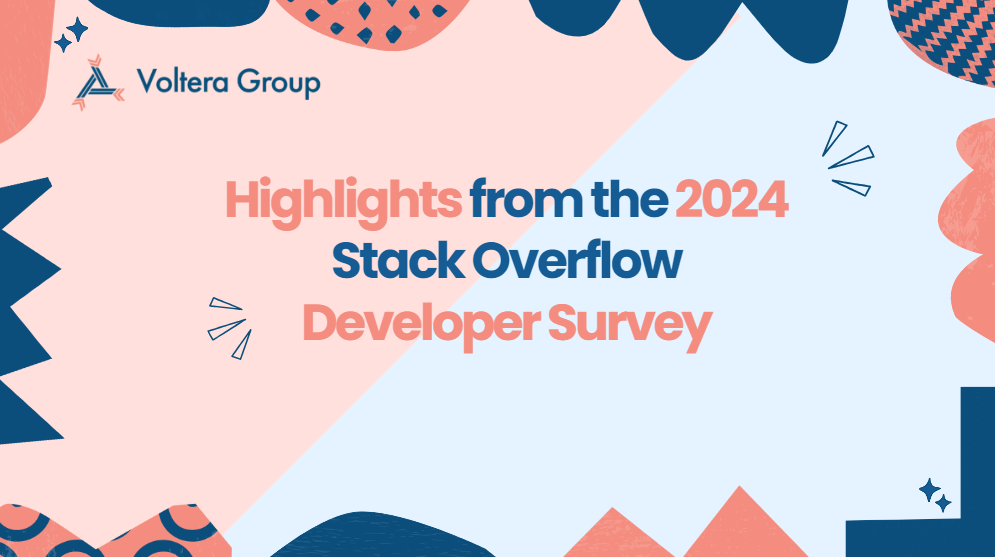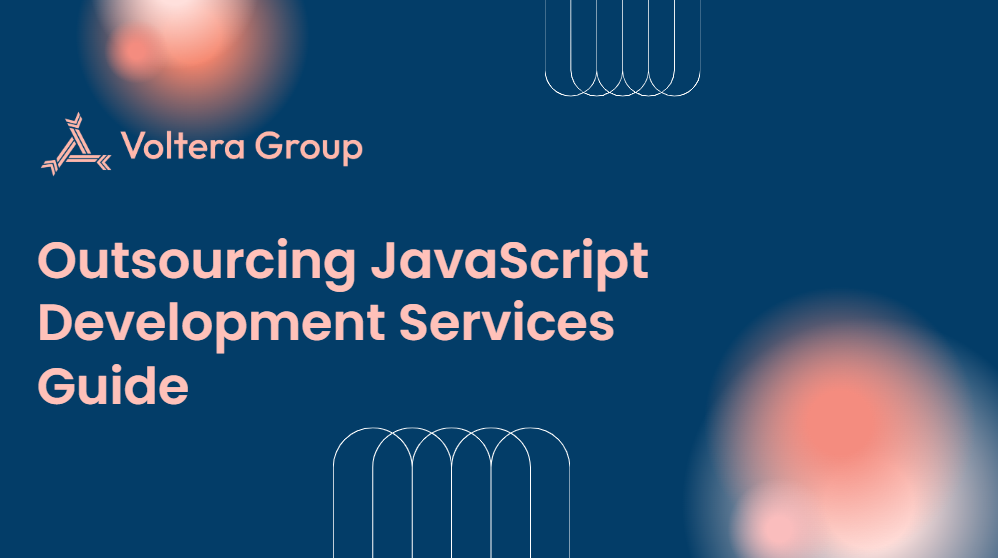The 2024 Stack Overflow Developer Survey has been released, providing an insightful overview of the developer landscape, highlighting key trends, preferences, and challenges faced by software professionals today.
As a leading player in the software development sector, Voltera Group keeps a close eye on these trends to adapt our services and strategies in alignment with industry needs. Here are some of the key highlights from this year’s survey and what they mean for us at Voltera Group.

Most Popular Programming Languages
The survey’s section on programming languages is always highly anticipated. In 2024, JavaScript continues to reign supreme as the most used language, with 68% of developers leveraging it for web development. At Voltera Group, we recognize the significance of JavaScript’s dominance, which informs our decision-making when developing web applications for our clients.
Python follows closely at 58%, gaining traction due to its versatility across domains such as data science, machine learning, and web development. This aligns with our focus on offering comprehensive data solutions and machine learning capabilities to our clients.
Notably, TypeScript is gaining momentum, reflecting a shift towards stronger typing and scalability in large codebases. Our team is actively incorporating TypeScript into our projects, enhancing code quality and maintainability.
Interestingly, Rust retains its position as the most loved language, praised for its efficiency and memory safety. This trend inspires Voltera Group to explore Rust for performance-critical applications, particularly in backend development.
Frameworks and Libraries: What’s Hot in 2024
When it comes to frameworks, React continues to dominate the front-end ecosystem, with over 40% of developers selecting it for UI development. At Voltera Group, we utilize React to build dynamic and user-friendly applications for our clients, ensuring an optimal user experience.
Vue.js and Svelte are also on the rise, appealing to developers seeking lightweight, easy-to-learn frameworks. This diversity of frameworks allows Voltera Group to tailor our solutions based on specific client needs and project requirements.
On the backend, Node.js remains the go-to choice, benefiting from seamless integration with JavaScript. Next.js has emerged as the leading framework for server-side rendering, which we leverage to enhance the performance and SEO of our web applications.

Developer Salaries and Job Satisfaction
The survey indicates a steady increase in developer salaries, with median salaries for experienced professionals rising by around 5% compared to 2023. At Voltera Group, we value our team members’ contributions, ensuring competitive compensation and benefits to attract and retain top talent.
Notably, blockchain developers and AI/ML engineers are among the highest-paid professionals, reflecting the growing demand for expertise in these innovative fields. Our focus on these technologies positions Voltera Group as a leader in delivering cutting-edge solutions.
Despite economic challenges, job satisfaction remains high, with 78% of respondents expressing satisfaction with their roles. At Voltera Group, we prioritize a positive work culture, providing opportunities for engaging projects in AI, cloud computing, and cybersecurity that keep our team motivated.
AI and Automation in Development
The 2024 survey highlights a significant shift in how developers are integrating AI tools and automation into their workflows. Over 40% of developers are utilizing AI-based code assistants like GitHub Copilot and ChatGPT to enhance their coding processes. At Voltera Group, we are at the forefront of this trend, incorporating these tools into our development practices to improve efficiency and accelerate project delivery.
While the benefits of AI are clear, concerns about job displacement and ethical considerations remain prevalent. Voltera Group is committed to promoting responsible AI usage, ensuring our solutions adhere to ethical guidelines and foster a positive impact in the industry.

Remote Work and the Future of Development
The remote work trend shows no signs of slowing down, with over 65% of developers working fully remotely or in hybrid environments. Developers cite better work-life balance and flexibility as key benefits. At Voltera Group, we have embraced this shift, creating a remote-friendly culture that prioritizes asynchronous communication and effective collaboration tools.
However, we recognize the challenges of remote work, such as maintaining team cohesion and ensuring access to resources. Voltera Group is dedicated to continually improving our remote work strategies, empowering our teams to thrive in a digital-first world.





